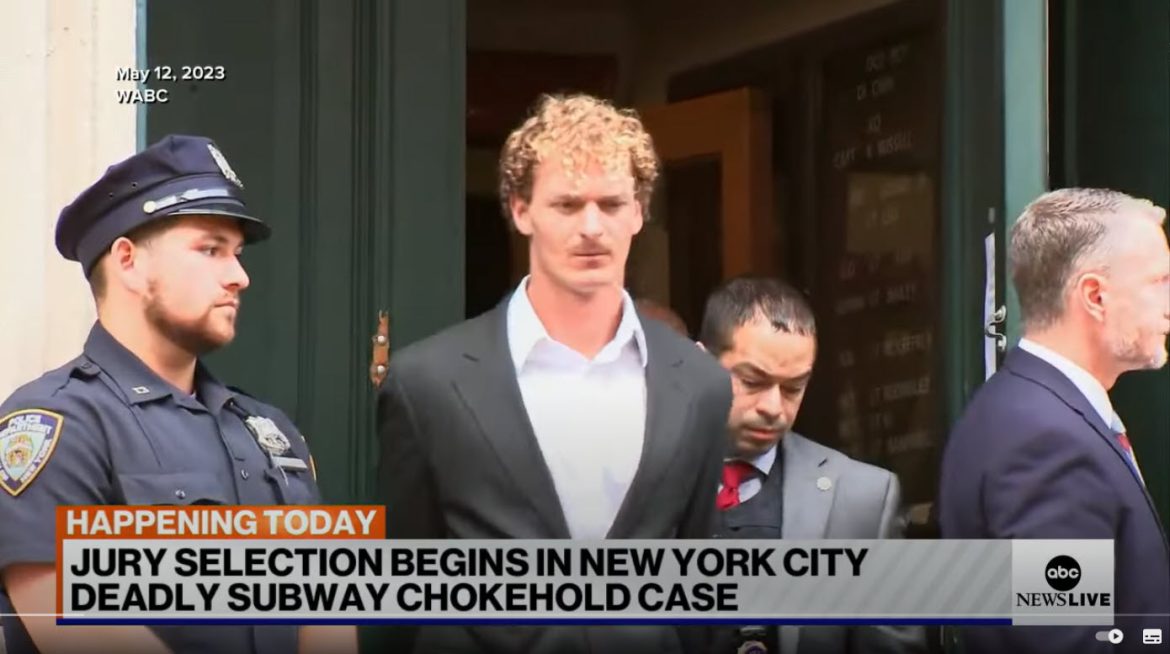Jury selection has officially begun today in the highly publicized trial of former Marine Daniel Penny, who stands accused of choking a homeless Black man, Jordan Neely, to death on a Manhattan subway train last year. Penny faces charges of manslaughter and criminally negligent homicide in connection with the incident, which has sparked widespread controversy and reignited debates about race, mental health, and self-defense in public spaces.
The incident took place in May 2023, when Penny allegedly placed Neely in a chokehold during a confrontation on a subway train. Penny claims that Neely, who was known for his history of mental health struggles, was harassing passengers and posing a threat. In response, Penny says he acted to protect those aboard the train, believing that the situation had escalated to a dangerous level. However, prosecutors argue that Penny’s actions went too far, as he held Neely in the chokehold for several minutes, resulting in Neely’s death shortly thereafter.
The case has drawn significant attention both locally and nationally, as it raises critical questions about the boundaries of self-defense and the rights of individuals in public spaces. Some view Penny’s actions as an attempt to protect others from a perceived threat, while others see the chokehold as an excessive use of force that resulted in an unnecessary death. The fact that Neely was homeless and struggling with mental illness has only added to the complexity of the case, with advocates pointing to systemic failures in addressing homelessness and mental health care in New York City.
The trial is expected to take six weeks, with jury selection alone potentially lasting up to two weeks, according to the presiding judge. Penny has pleaded not guilty to the charges, and his defense team is preparing to argue that he acted in the best interest of the public’s safety. His lawyers have suggested that Neely’s erratic behavior on the train, including allegedly making threats against passengers, justified Penny’s intervention.
Prosecutors, however, maintain that Penny’s use of the chokehold was excessive and ultimately lethal. They are focusing on the fact that Neely was held in the chokehold for an extended period, well beyond the point necessary to subdue him. Neely’s death, which occurred shortly after the incident, has been a key point in the prosecution’s case, as they argue that Penny could have disengaged sooner to avoid fatal consequences.
The trial is expected to draw considerable media coverage and public interest, with many seeing it as a reflection of larger societal issues, including the treatment of homeless individuals and the public’s role in intervening in potentially dangerous situations. For some, Penny’s actions have been hailed as those of a good Samaritan, while others believe he acted recklessly and that Neely’s death was preventable.
As jury selection gets underway, both sides are preparing for what is likely to be an emotionally charged and closely watched trial. The outcome will likely have significant implications not only for Daniel Penny but for broader conversations about public safety, race, and justice in America’s largest city.



